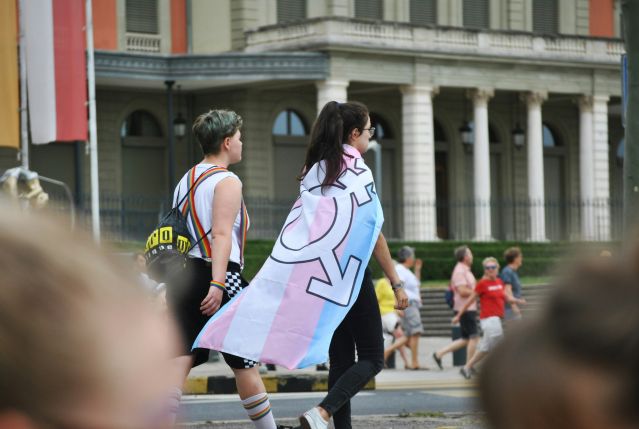Transgender
Authenticity Is a Privilege Many Minorities Aren't Afforded
The attack on the transgender community has taken an unbearable toll.
Updated February 21, 2024 Reviewed by Lybi Ma
Key points
- Anti-trans legislation, and crimes against the transgender, have been on the rise.
- Transgender people are more often victimized than cisgender people.
- For gender minorities to live authentically, we must create a safe and welcoming environment.

Psychologist Carl Jung once said, “The privilege of a lifetime is to become who you truly are.” With the current politicization of transgender issues, it would appear this privilege isn’t afforded to everyone.
Recently, Utah school board member Natalie Cline shared a flyer with photos of a high school basketball team in Salt Lake County. On her social media, she implied that one of the players was a transgender athlete. Equality Utah has since confirmed that the student is cisgender. Despite this, the student Cline referenced received relentless threats, requiring the school district to provide the unsafe player with security.
Local and federal governments throughout the United States have been hard at work trying to protect students from what they perceive as dangerous gender minorities. There are 468 anti-trans bills currently being tracked across the nation. But who are these bills protecting?
Transgender people are four times more likely to be victims of a crime than cisgender people. The Department of Homeland Security stated:
LGBTQI+ individuals face a surge in violence against individuals and community spaces. Federal threat monitoring has shown that these threats are increasingly tied to hate groups and domestic violent extremists. LGBTQI+ Americans – especially transgender women and girls of color – have experienced disproportionately high rates of violence and hate crimes for decades.
One example of this victimization was demonstrated in Oklahoma. Nex Benedict, a 16-year-old nonbinary student passed away February 8, 2024, one day after sustaining injuries in a school bathroom fight. According to their mother, Benedict had been bullied at school over their gender identity. This tragedy took place just months after the governor of Oklahoma signed an executive order requiring students to use bathrooms that match their sex assigned at birth and restricting gender-affirming care for trans youths.

Research suggests that such bathroom restrictions increase peer victimization and hostility. The authors of the study concluded:
Transgender and non-binary middle and high school youth in one sample experienced sexual assault at troubling rates well above those for non-transgender adolescents. Besides avoiding restrictive policies, schools should strongly consider designating 'all-gender restrooms,' along with additional adult supervision in locations where harassment is most likely to occur, training staff to intervene in anti-LGBTQ bullying, and offering privacy options (for example, curtains) in locker rooms.
Chuck Hoskin Jr., principal chief of the Cherokee Nation said of Benedict, “The more we learn about Nex’s life, the more we come to know a wonderful child whose experience and identity mattered and was worth celebrating. Above all, Nex deserved to live a full life. It was cut tragically short.”
Too many members of the LGBTQ community have their lives cut short. Gender and sexual minorities who experience bullying, family rejection, and victimization are at greater risk of depression, anxiety, and suicide. A review study published in JAMA Pediatrics found that rates of attempting suicide among trans teens were 5.87 times higher than the average among all teens.
Like Carl Jung, researcher Brené Brown often encourages her readers to dare greatly and be authentic. She said, “Vulnerability is not winning or losing; it’s having the courage to show up and be seen when we have no control over the outcome. Vulnerability is not weakness; it’s our greatest measure of courage.”
The ability to show up and be seen is a privilege for those who are safe and accepted. Sexual and gender minorities often don’t have the luxury of living authentically. It is vital that leaders and politicians create a celebrated space for every student.


